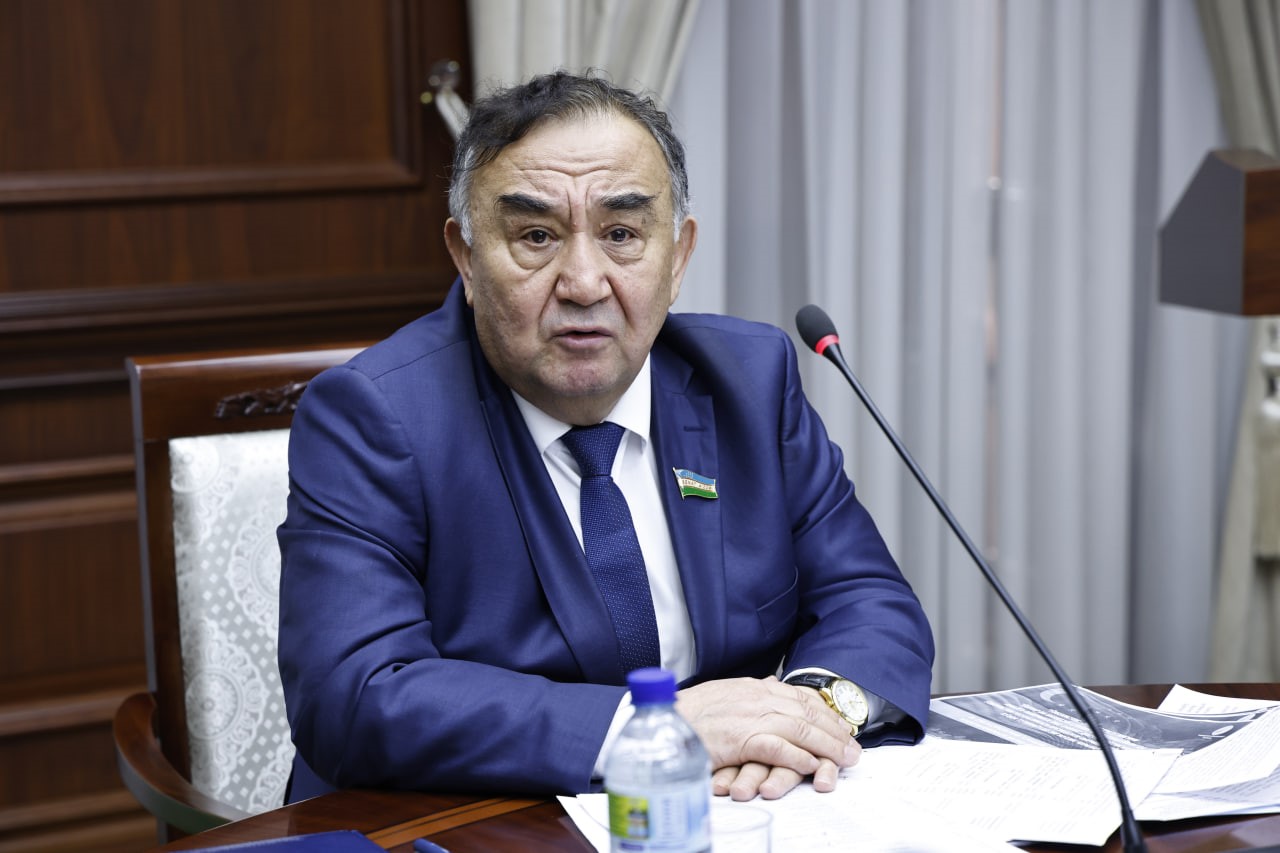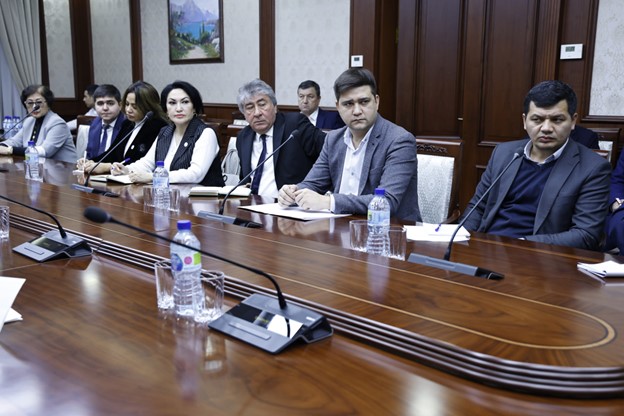Jahongir Azizov, Director of the Country Office of the Regional Environmental Centre for Central Asia (CAREC), participated in a meeting of the Development and Environmental Committee of the Senate of the Oliy Majlis of the Republic of Uzbekistan on 6 February.
The session discussed the draft State programme to implement the "Uzbekistan - 2030" strategy in the "year of support for youth and business".

The State programme aims at the efficient implementation of a wide range of reforms defined by the "Uzbekistan - 2030" Strategy, achieving the well-being of the people, ensuring high rates of economic growth based on the principles of the "green economy", improving the environmental situation, rational use of water and other natural resources, comprehensive support for young people and full implementation of their initiatives.
The senators noted that the state program, as in all spheres, pays special attention to the issues of ecology, environmental protection, ensuring environmental sustainability, expanding the use of renewable energy sources, and Rational and efficient use of water resources.
To increase the weight of "green energy" sources this year with the participation of foreign investors, it is planned to put into operation 6 large solar power plants with a total capacity of 2,700 MW in the Tashkent, Kashkadarya, Bukhara, Namangan and Navoi regions. Senators emphasized that this, in turn, will serve as an important factor in ensuring energy stability in our country.
Also, to further enhance the enabling environment for the transition to a "green economy", "green" certificates based on market principles will be traded.
In addition, to save water resources, it is planned to concretize major canals, carry out a radical reform of the water management system, develop water-saving technologies, and widely introduce private sector mechanisms and public-private partnerships.
Reportedly, the issues of reducing the negative impacts on the air, preventing air pollution, reducing emissions of harmful gases into the atmosphere of the economic sectors by 1,5 per cent, dust storm control and mitigation, and mandatory installation of an overhead rainwater spray on the construction site and access routes.
This year, the goal is to increase the number of green plants to 444, to raise the level of green plantings by 12.4 per cent, to create a "green belt" of 2.1 million seedlings in the territory of 112 large industrial enterprises and adjacent areas, take measures to increase the forest area of the Republic to 3.65 million hectares (8.1 per cent) and ensure environmental sustainability. The participants mentioned that security was a crucial factor.

As already recognized, in addition to practical measures for environmental protection and water conservation, the State programme included the development of a number of normative legal acts in this field.
As part of the tasks aimed at stabilizing the environmental situation in the Aral Sea region and mitigating the negative impact of environmental problems caused by the drying up of the Aral Sea, they noted that the creation of an additional 100,000 hectares of greenery on the dry seabed plays an important role in preventing the negative impact of climate change, ensuring the sustainable conservation of biodiversity.
Senators emphasized that the tasks set in the state program are a significant program practice in ensuring the prosperity of the country, the well-being of the people, especially in achieving environmental stability in the country, the rational use of natural resources, creating a favorable environment for the life and health of the population, water conservation. Senators made a number of proposals and recommendations to the draft State Programme.
